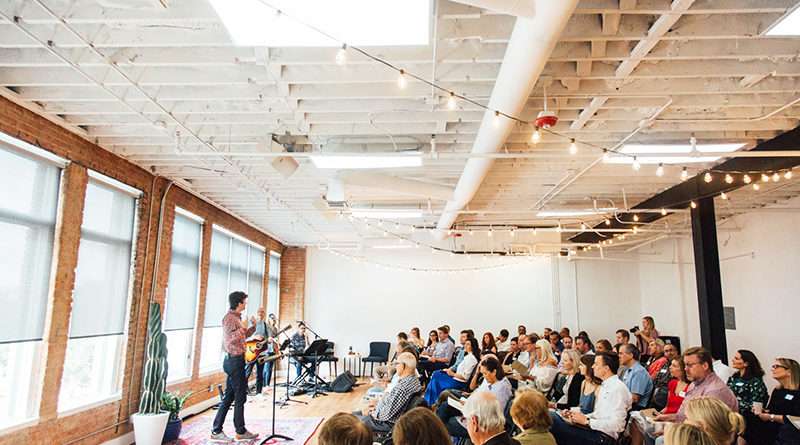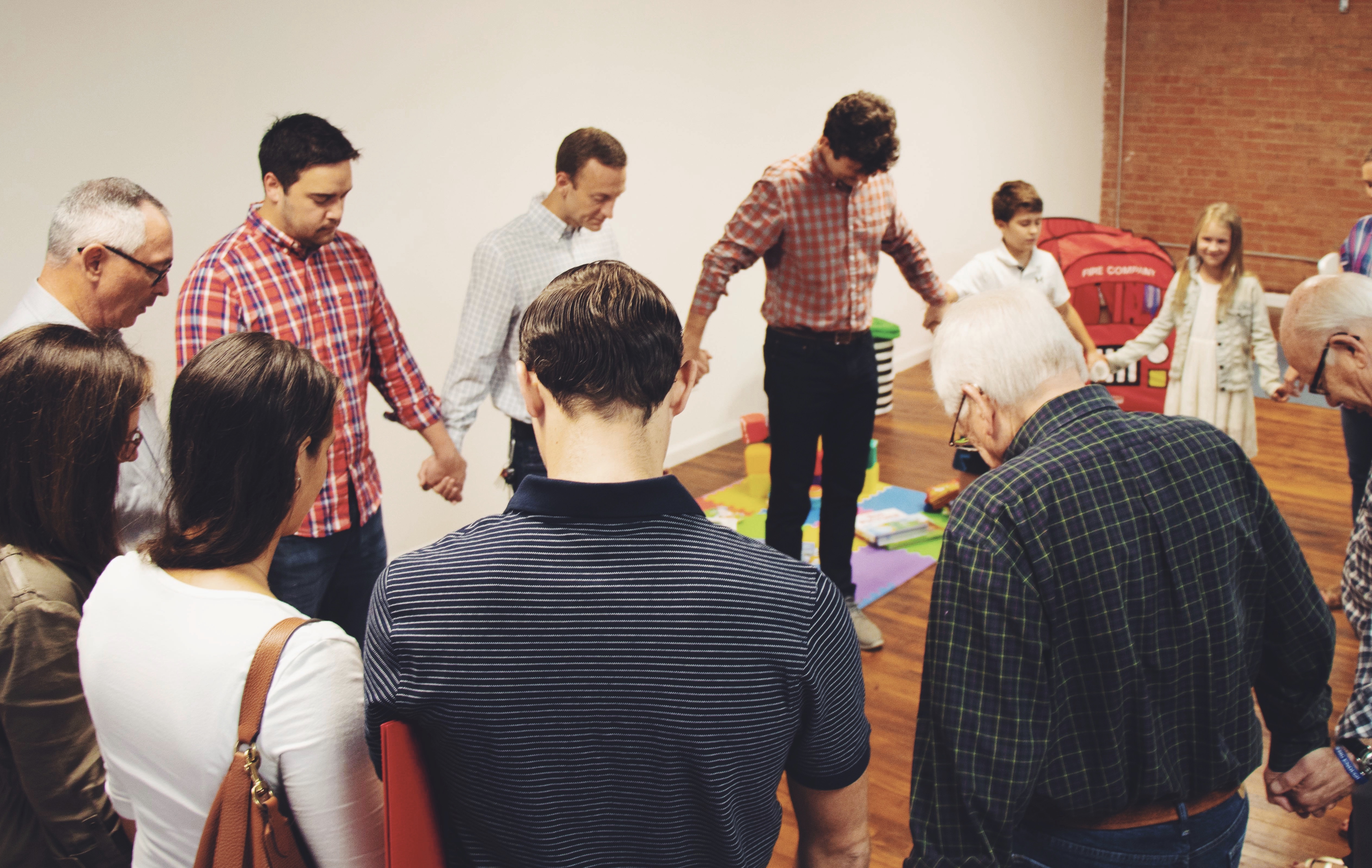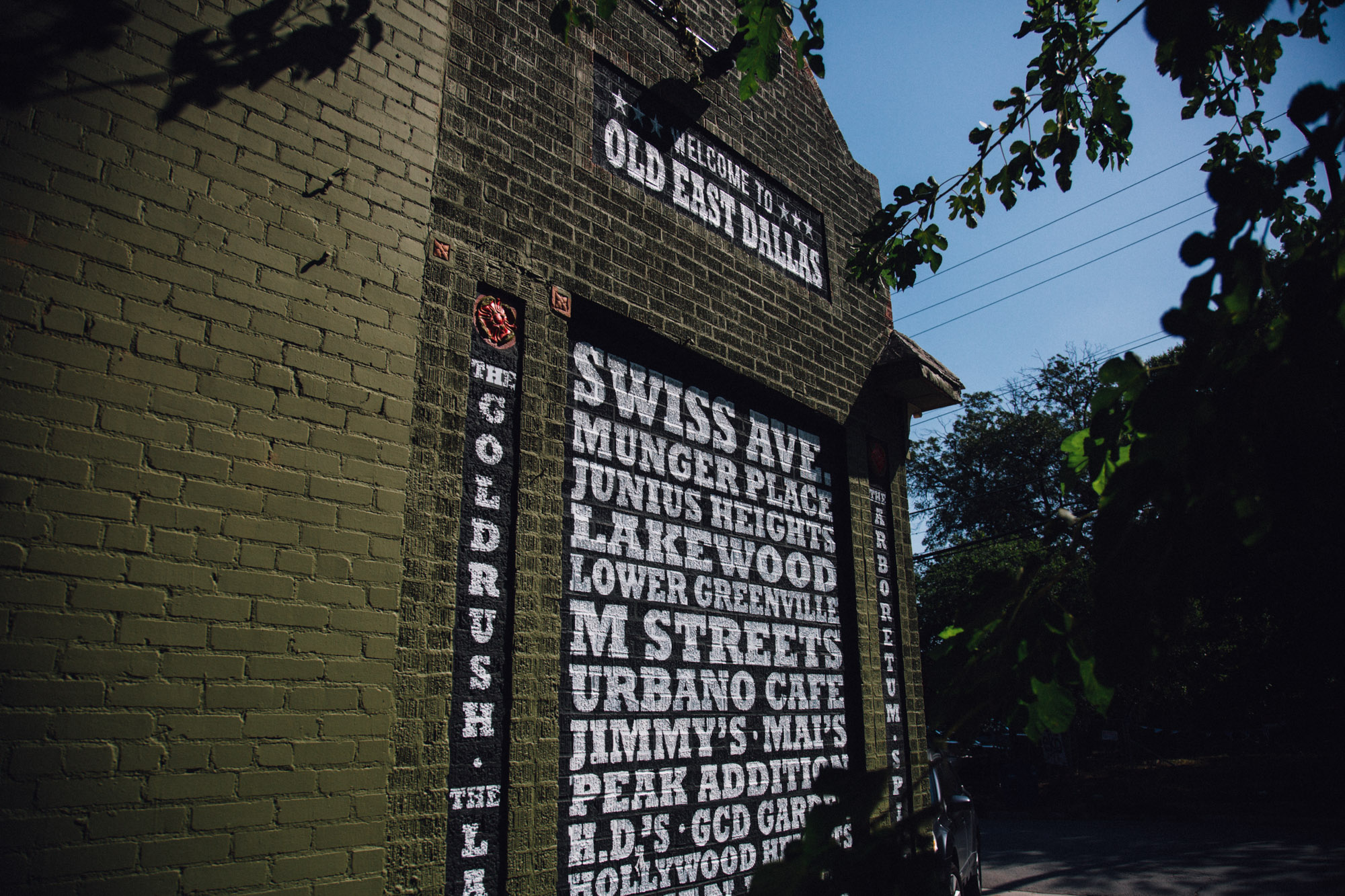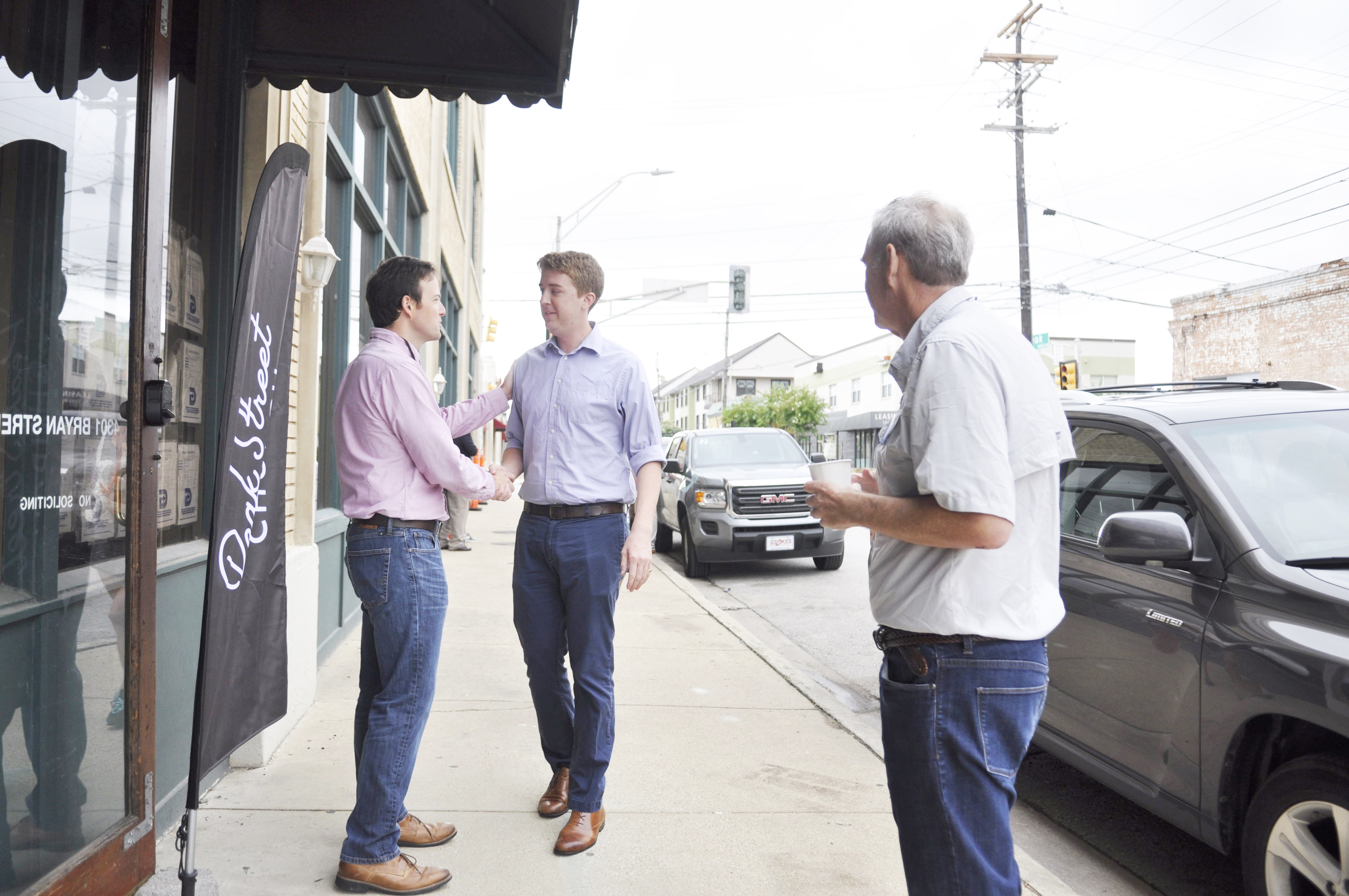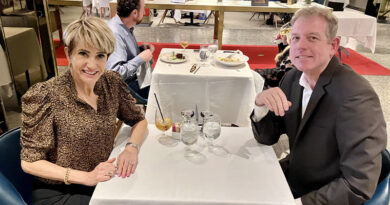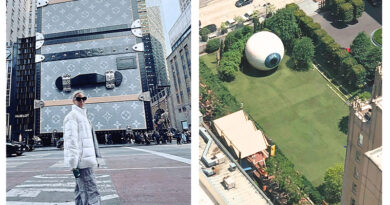Bridging the Community
It’s been said that life dramatically changes when people stop worrying about what a good Christian would say and start doing what a good Christian would do.
For many Park Cities and Preston Hollow congregations, this means stepping out of comfort zones and following where the Lord leads – even into more impoverished areas of Dallas.
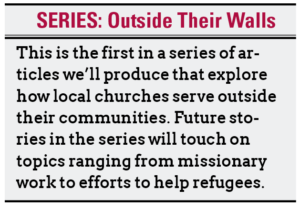
Most recently, one of the Park Cities oldest churches opened its first starter church in the heart of Old East Dallas, a neighborhood peppered with vacant lots juxtaposed with old, quaint homes and new, modern cube-shaped ones.
The Rev. Cameron Beaty said it became apparent to Highland Park Presbyterian Church that the area just shy of downtown is on a path for progress and help.
“There is the disenfranchised but also the young professionals and culture makers,” Beaty said. “We thought this was a great place to put out a stake and establish an outpost.”
Late September, Beaty with a robust HPPC presence opened the doors of Peak Street Church in a loft-like space with dangling lights and floor-to-ceiling windows. Instead of a pipe organ, an acoustic guitar and violin help lead worship.
East Dallas and the Park Cities are very different, so what works on University Boulevard doesn’t at the corner of North Peak and Bryan Streets, pastor Beaty said.
So why when there is such a difference in culture do such churches as HPPC, Saint Michaels and All Angels Episcopal, Park Cities Baptist, and Lovers Lane United Methodist look to implant themselves in other communities?
Their collective answer: There are still many people that don’t know the hope of Christ.
Park Cities and Preston Hollow churches have also ventured out to open churches for the homeless and in areas such as Vickery Meadows. One of the more obvious examples of such efforts came more than 20 years ago when Saint Michael and All Angels celebrated its 50th anniversary, it’s Jubilee, by embedding itself and $50,000 in one of Dallas’ most dangerous neighborhoods.
The Jubilee Project, as it came to be called, settled into 62-blocks of Southeast Dallas – bordered by Interstate 30, the East Grand Avenue corridor, and Fair Park – because it seemed like the hardest case in town.
At the time, trash collectors would not come to the area in fear of being shot, CEO Ben Leal said. Alleyways turned into landfills, dime bags and syringes littered gutters and sidewalks, and gang members had residents afraid to leave their homes.
Through decades of establishing trust with an education-based program, the Jubilee Project has helped instill a sense of pride in the neighborhood, combat gentrification with affordable housing, and bring the crime rate down 74 percent.
“When we came into this neighborhood we didn’t want to be a religion all in your face,” Leal said. “We are not playing God here at all, what we are doing is assisting people.”

